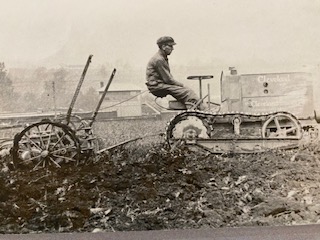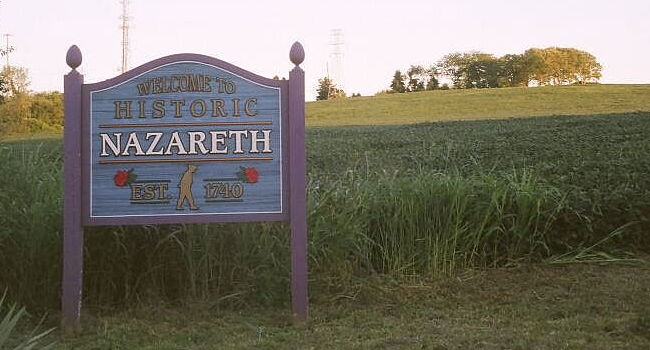
The old Atlas Portland Cement Company complex was located on 728 acres of land. During World War I, the company decided to plow a 40-acre tract and give plots to employees to raise vegetables for their families.
The Cement News’ March 1918 edition states, “During last year, 375 employees had the opportunity to raise splendid crops. Over 500 plots have already been taken up this season. Each employee is given a plot equivalent to 2,500 square feet, plowed and harrowed, ready for planting. The company will also cart away, free of charge, all rubbish and weeds cleaned from the lots during the season.”
H.J. Steele, of the House of Representatives, took a deep interest in the garden program and procured a generous supply of vegetable seeds and manuals of “home drying of vegetables and fruit” and manuals on “home storage, pickling and fermenting vegetables” for company employees and continued the distribution of seeds for the opening of the season. The seeds were highly appreciated and yielded excellent crops.
In the 1920s, prosperity returned to the American economy for a short period of time, but in 1929, the economy fell into the Great Depression. Unemployment brought a shortage to American families. Although the Atlas only worked a few months each year, the gardens returned.
In my past research, I was told how families depended on the gardens to produce potatoes, cabbage, carrots, lettuce and other vegetables. Many families had meatless meals. During the hot summers, families walked down to the Hokendauqua Creek with zinc buckets to carry water to their arid gardens.
During World War II, the gardens continued to produce vegetables for families. Food products were rationed during WWII, so the produce helped feed families. The gardens were named victory gardens.
Today, the gardens and the Atlas are gone, and some of the land is part of the Laubach Avenue park system.
More in two weeks!









